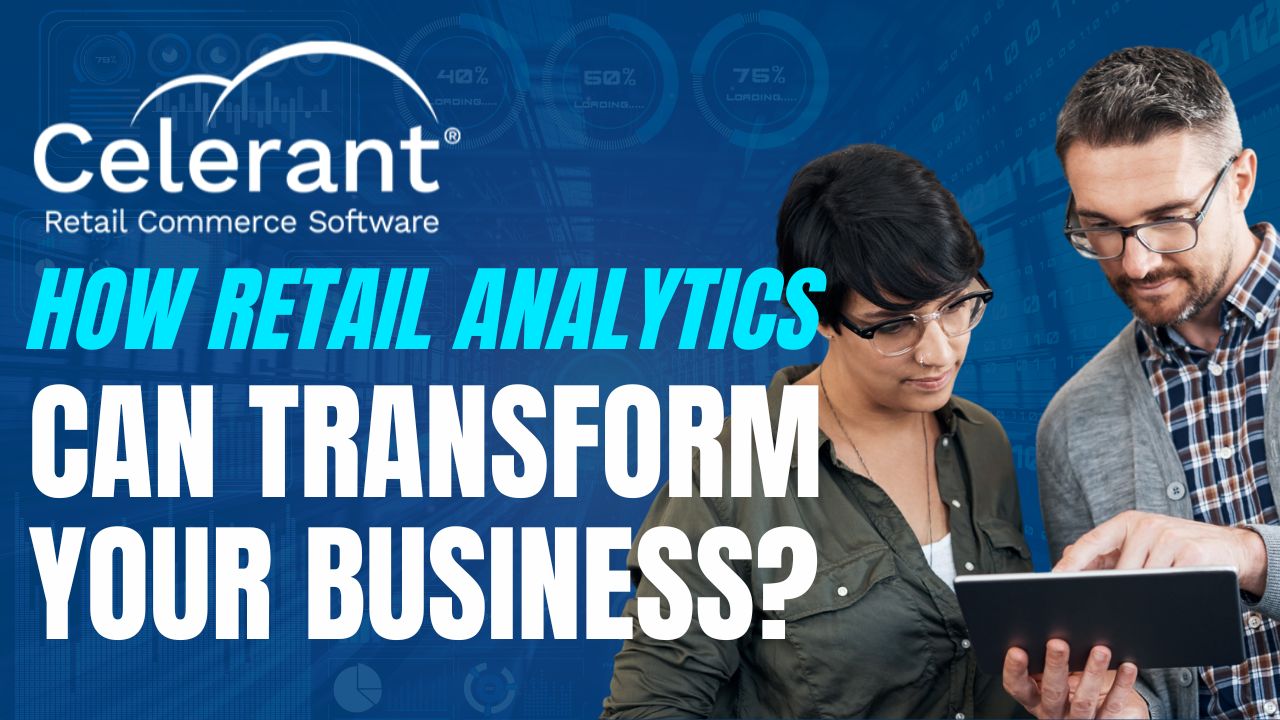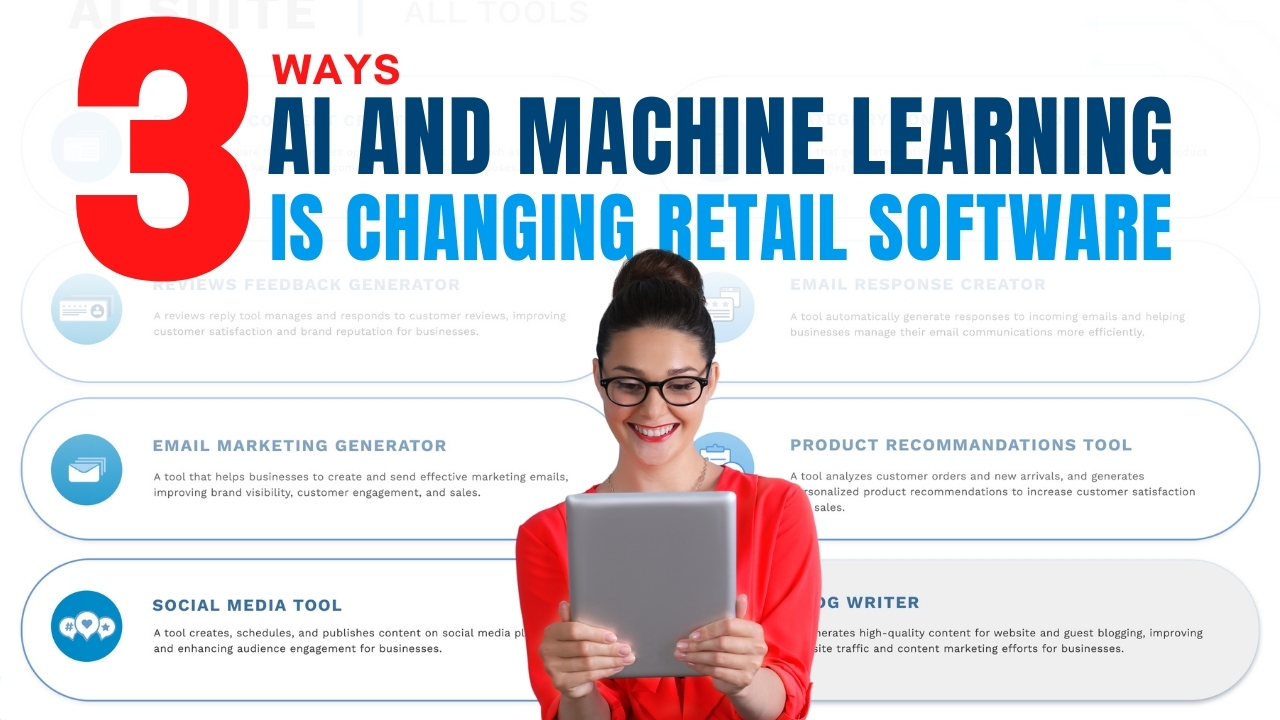Blog
How Retail Analytics can Transform Your Business?
June 26, 2023 / 9 minute read / By Zoya Naeem

Blog

The retail landscape is constantly evolving. New technologies, changing consumer preferences, and global competition, are all putting pressure on retailers to stay ahead of the curve. In this rapidly changing environment, retail analytics is emerging as a powerful tool for gaining insights, making better business decisions, and driving growth.
By analyzing data from a variety of sources, retailers can gain a deeper understanding of their customers, their buying habits, and the competitive landscape. All of which can help them improve everything from product assortment and pricing to marketing and customer service.
In today’s blog, we are discussing the importance of retail analytics and how it is transforming the retail industry, we are also shedding some light on the benefits retailers can reap by leveraging comprehensive analytics tools and solutions. We are also covering how businesses can embrace the power of data-driven decision-making and stay ahead of their competitors in today’s marketplace.
But first, let’s define retail analytics so that we can better understand its importance in driving business growth and profits.
Retail analytics encompasses the collection, analysis, and interpretation of data derived from various retail sources, including POS systems, customer interactions, and supply chain operations. It provides retailers with valuable insights into consumer behavior, market trends, and operational efficiencies. By leveraging business analytics and business intelligence solutions, retailers can extract meaningful trends and patterns from vast volumes of data, transforming them into actionable intelligence.
In the world of retail, making the right decisions can make all the difference. That’s where retail analytics steps in, ready to revolutionize the industry in three major ways:
Having access to the right information at the right time is essential for decision-making. Retail analytics provides real-time insights that empower retailers to make data-driven decisions on the fly. By tapping into a wealth of data from customer interactions, sales transactions, and social media engagement, retailers can gain a better picture of what’s happening in their business at a specific moment in time. This real-time knowledge allows them to act quickly, adapt to market changes, and get ahead of their competition.
Inventory management and supply chain optimization are two core areas where retail analytics shines. By leveraging analytics tools, retailers can easily keep track of their inventory levels, monitor product performance, and identify patterns of demand. All of this can help them make smarter decisions about inventory replenishment, reducing stockouts, and minimizing excess inventory. The results, you ask?
-A finely tuned supply chain that makes sure products are available right when the customers want them, leading to an even happier fan base and more sales.
Understanding customers is at the heart of retail, and retail analytics keeps it healthy. By analyzing customer behavior and preferences, retailers can tap into insights that can help them create personalized promotions and experiences. From tailoring marketing messages and promos to creating audience segments and running highly targeted campaigns -retail analytics can help you build stronger connections, identify pain points and areas of improvement, offer personalized recommendations, and engage customers on a deeper level.

Retail analytics also play an essential role in streamlining business operations. It helps retailers identify operational bottlenecks and inefficiencies, allowing them to make targeted improvements. From optimizing workforce management and scheduling to improving store layouts and product placements -retail analytics can open up a whole new world of opportunities for operational efficiency. By leveraging these insights, retailers can reduce costs, improve productivity, and create a seamless shopping experience for customers.
In the competitive world of retail, business analytics can play a crucial role in unlocking several benefits for retailers, including:
Retailers can run targeted marketing campaigns and promotions by tapping into business analytics. Sending out personalized messages to specific customer segments, and delivering the right offer to the right person at the right time, can result in higher conversion rates and increased revenue.
In addition to that, analytics can help you cross-sell and upsell products. By analyzing customer buying habits and preferences, retailers can recommend complementary or upgraded products enticing customers to add more to their shopping carts. This personalized approach not only improves the average order value but also enhances the overall customer experience.
With the ability to analyze market trends, competitor pricing, and customer behavior, retailers can set optimal prices that maximize sales and profit margins. By finding the sweet spot between customer value and profitability, retailers can strike a balance that drives business growth.
In the quest for efficiency, business analytics offers significant cost-saving opportunities for retailers. One area where analytics excels is minimizing inventory holding costs. By analyzing historical sales data, demand patterns, and market trends, retailers can optimize inventory levels, reducing the need for excess stock. It significantly improves the efficiency of inventory management that frees up capital and also minimizes the risk of obsolete or unsold inventory.
Another advantage of business analytics is its ability to identify and prevent retail fraud. By analyzing transactional data, retailers can timely detect suspicious patterns or anomalies, and flag fraudulent activities. This proactive approach not only helps safeguard revenue but also enhances trust and credibility with customers.
Understanding and quickly adapting to consumer trends is essential for retailers seeking a competitive edge. Business analytics can provide retailers with insights into consumer preferences, purchasing behavior, and changing trends. Having this knowledge, retailers can fine-tune their product offerings, deploy marketing strategies, and always stay one step ahead of changing consumer demands.
Monitoring and benchmarking competitors is another major benefit of business analytics for retailers. By harnessing competitor data and market intelligence, retailers can gain insights into pricing strategies, product assortments, and promotional activities. This knowledge empowers retailers to make informed decisions, identify strategic opportunities, and differentiate themselves from the competition.
Moreover, business analytics can help you leverage analytics to deliver personalized experiences, deliver personalized experiences, and create positive interactions that foster loyalty. This, in turn, builds a strong brand reputation and cultivates trust, positioning retailers as leaders in the market.
While there are numerous benefits of business analytics and business intelligence solutions in retail, implementing an effective analytics strategy does come with its own set of challenges. Here are some of the key considerations that retailers should keep in mind when venturing into the world of retail analytics:
The base of retail analytics lies in data, and collecting relevant data can be a complicated and complex task. Retailers need to ensure they have the right processes and systems in place to collect accurate and reliable data. This may involve integrating various data sources such as POS systems, customer relationship management (CRM) platforms, and online interactions. Data quality assurance is equally important, as incomplete, or inaccurate data can lead to flawed insights and misguided decisions. Retailers need to implement data governance practices to maintain data integrity and credibility.
In retail, data is consumed through various systems and formats, making integration a significant challenge. To unlock the full potential of retail analytics, retailers need to integrate disparate data sources into a unified analytics platform. This integration enables a comprehensive view of the business, connecting the dots between customer data, sales data, inventory data, and more. However, the integration process can be a lot more complex and time-consuming, requiring careful planning, data mapping, and system compatibility assessments.
With the increasing use of customer data in retail analytics, ensuring data privacy and security is of high importance. Retailers must prioritize data protection to maintain customer trust and comply with privacy regulations. This involves implementing robust security measures, such as data encryption, access controls, and regular security audits. Retailers need to be transparent about their data collection practices and provide clear privacy policies to customers.
Retailers need to address these challenges proactively to maximize the benefits of retail analytics while mitigating potential risks.
Driven by advancements in technology and the quest for better insights -the world of retail analytics is constantly evolving. Here are some of the future trends and innovations that are reshaping the landscape of retail analytics.
AI and ML significantly impact the retail world, particularly for companies that rely on online sales, where using some kind of AI technology is pretty common these days.
Big box companies like Amazon, eBay, and Alibaba have successfully integrated AI technology across the entire sales cycle, from warehouse storage to logistics and post-sale customer services. However, you do not have to be a big company or sell exclusively online to reap the benefits of the power of machine learning.
Whether you are an online retailer or brick-and-mortar store of any size, you can integrate AI technology to analyze vast amounts of data, identify patterns, and generate actionable insights at an unprecedented scale and speed to always stay ahead of your competitors. For instance, AI-powered chatbots can provide personalized product recommendations and assist customers in their purchase journey. As AI and ML continue to advance, retailers can expect even more sophisticated and accurate predictive and prescriptive analytics capabilities.
The future of retail analytics lies in predictive analytics. It is one of the most powerful tools retailers can use to make better decisions faster. How does it work? Well, it uses data, AI, and ML algorithms to forecast future trends, customer behavior, and demand patterns with greater accuracy.
Predictive analytics enables retailers to proactively anticipate customer needs, optimize inventory levels, and fine-tune marketing strategies. By staying one step ahead, retailers can make timely decisions, reduce risks, and seize opportunities, driving business growth and competitiveness.
In today’s retail landscape, customers expect seamless experiences across multiple channels. Omni-channel analytics enable retailers to understand and optimize customer journeys that span physical stores, e-commerce platforms, mobile apps, and social media. By integrating data from these channels, retailers can gain a holistic view of their customers, track their interactions, and deliver consistent and personalized experiences. Omni-channel analytics empowers retailers to engage customers at every touchpoint, provide targeted offers, and create a seamless, cohesive brand experience.
As technology continues to advance, retailers should embrace these future trends and innovations in retail analytics to stay ahead of the curve and meet the evolving demands of their customers.
In conclusion, retail analytics is a powerful tool that can help retailers stay ahead of the curve. By using data to gain insights into customer behavior, retailers can make better decisions about everything from product placement to marketing campaigns. This can lead to increased sales, improved customer satisfaction, and a competitive edge in the market.
It is evident that embracing data-driven decision-making is no longer an option but a necessity for retailers to thrive. At Celerant, we strongly believe in the transformative potential of retail analytics, and that’s why we offer Stratus Analytics™, a powerful retail analytics solution designed to help retailers visualize and analyze their entire business.
With interactive dashboards, relevant KPIs, and the ability to share insights with employees, our solution enables retailers to make better decisions, enhance overall performance, and increase profitability.
So, whether you’re a startup or an enterprise-level retailer, it’s time to embrace the power of data-driven decision-making and unlock the full potential of retail analytics.
Remember, in this fast-paced retail environment, data is the key to staying relevant, understanding your customers, and achieving sustainable growth. Request a demo or connect with our team today to learn how we can partner up with you on this data-driven journey, and transform your business to create remarkable retail experiences for your customers.
 Want to provide more personalized customer journeys and more profitable pricing? Consider Artificial… |